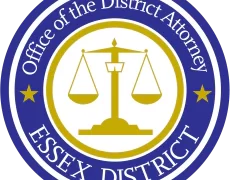BOSTON – Acting United States Attorney Joshua S. Levy announced today that the U.S. Attorney’s Office, in coordination with the Department of Justice, will monitor compliance with federal voting rights laws in eight Massachusetts cities. On Nov. 1, 2024, the Justice Department announced plans to monitor compliance with federal voting rights laws in 86 jurisdictions in 27 states for the Nov. 5 general election.
Election monitors in Massachusetts will be assigned to polling locations in Everett, Fitchburg, Leominster, Lowell, Malden, Methuen, Quincy and Salem. Assistant United States Attorney Anuj Khetarpal has been appointed as Voting Rights Coordinator for the District of Massachusetts and will lead the U.S. Attorney’s Office’s Election Day monitoring efforts. Nationally, the Justice Department’s Civil Rights Division will coordinate the effort which includes monitors from the Civil Rights Division, other Department divisions, U.S. Attorney’s Offices and federal observers from the Office of Personnel Management.
On Oct. 31, 2024, the U.S. Attorney’s Office announced the appointment of a District Election Officer to oversee the handling of Election Day criminal complaints, threats of violence to election officials or staff and election fraud, in consultation with Justice Department in Washington.
The Department’s Civil Rights Division’s Voting Section enforces the civil provisions of federal statutes that protect the right to vote, including the Voting Rights Act (VRA), National Voter Registration Act, Help America Vote Act, Uniformed and Overseas Citizens Absentee Voting Act and Civil Rights Acts. The Division’s Disability Rights Section enforces the Americans with Disabilities Act (ADA) to ensure that persons with disabilities have a full and equal opportunity to vote. The Division’s Criminal Section enforces federal criminal statutes that prohibit voter intimidation and voter suppression based on race, color, national origin or religion.
The Voting Rights Act (VRA) makes it illegal for states and local governments to use voting practices or election rules that deny or restrict voting rights because of a citizen’s race or color, or which result in citizens who belong to a particular language minority group having less of an opportunity than everyone else to vote for and elect their chosen public officials. The VRA also protects voters’ rights to mark their own ballot or to be assisted by a person of their choice (where voters need assistance because of disability or inability to read or write in English).
“The Department’s longstanding Election Day Program is vital to combatting discrimination at the polls and furthering public confidence in the electoral process. Every citizen must be able to vote without interference or discrimination. My office is proud to be a part of this important effort to protect the sacrosanct right to vote,” said Acting United States Attorney Levy.
The public can direct concerns or complaints about voting rights to the U.S. Attorney’s Office in Boston at (833) 634-8669. Complaints about possible violations of the federal voting rights laws can also be made directly to the Civil Rights Division in Washington, DC by complaint form at https://civilrights.justice.gov/ or by phone at (800) 253-3931.
Individuals with questions or complaints related to the ADA may call the department’s toll-free ADA information hotline at (800) 514-0301 or (833) 610-1264 (TTY) or submit a complaint through a link on the department’s ADA website at www.ada.gov.
Complaints related to any disruptions at a polling place should always be reported to local election officials (including officials based in the polling place). Complaints related to violence, threats of violence or intimidation at a polling place should be reported immediately to local police authorities by calling 911. These complaints should also be reported to the department after local authorities have been contacted.
More information about voting and elections, including guidance documents and other resources, is available at www.justice.gov/voting. Learn more about the Voting Rights Act and other federal voting laws at www.justice.gov/crt/voting-section.





